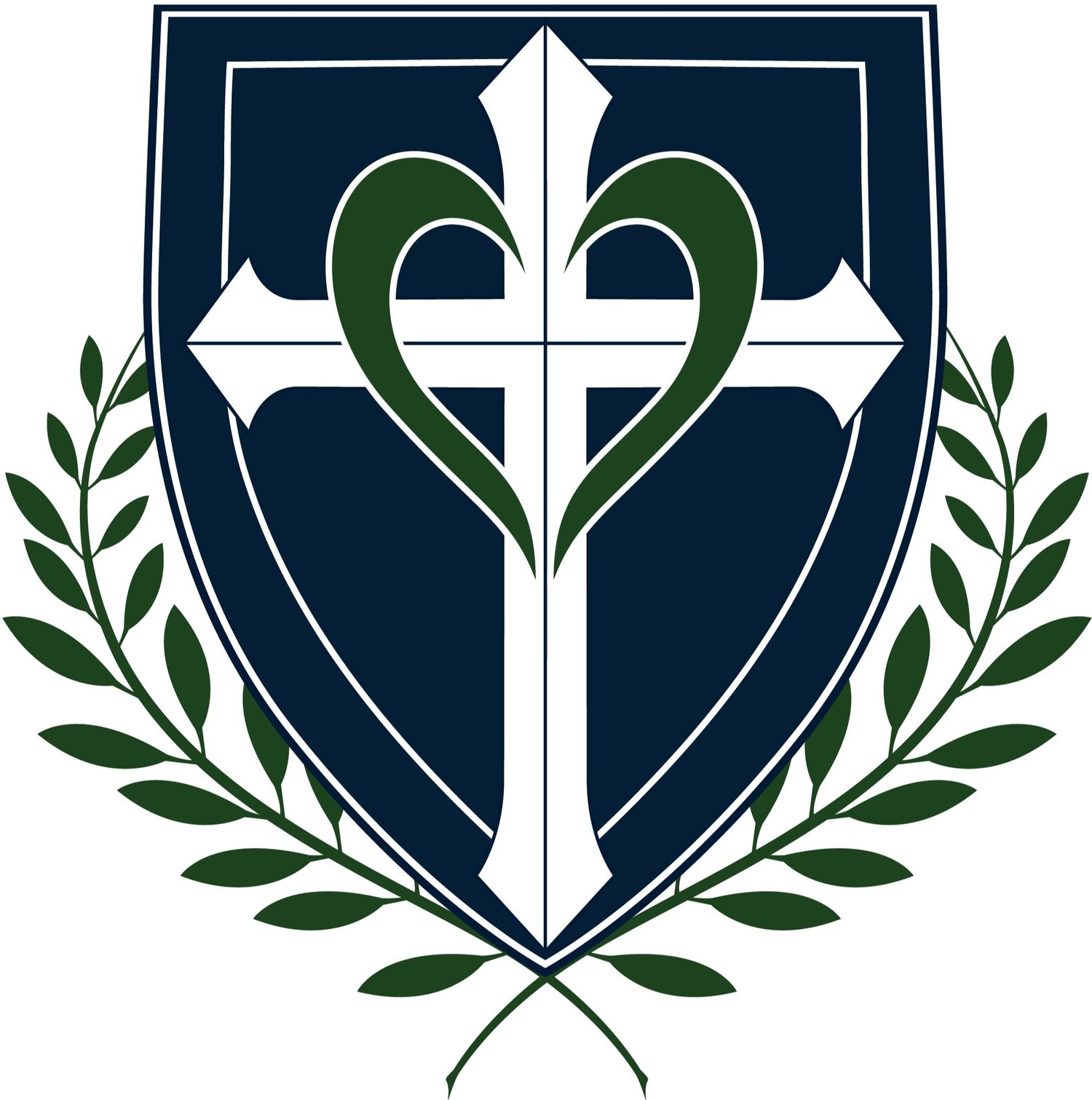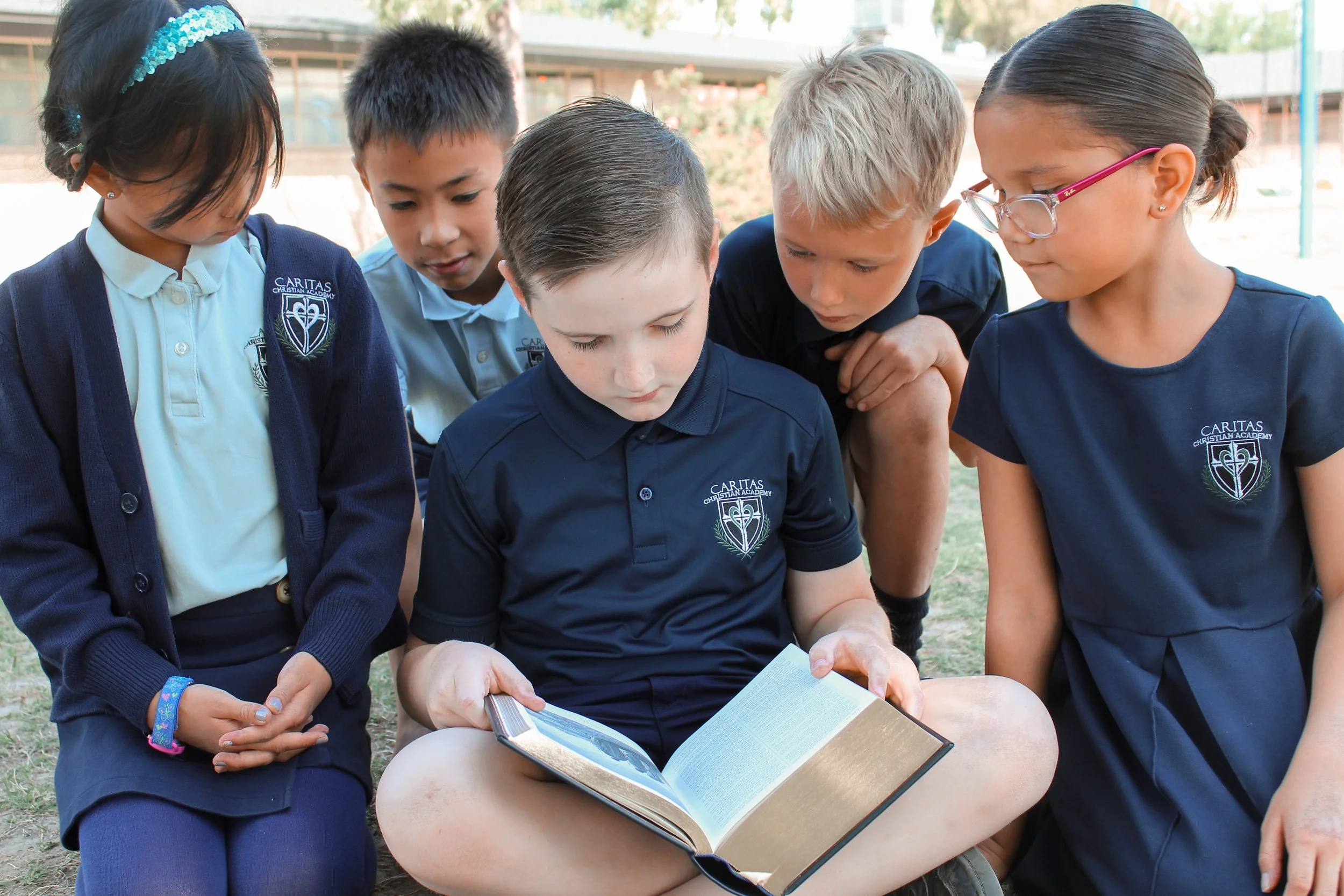What Makes Caritas Different
Eleven Results Unique to a Christian Classical Education
Christian integration: Students see all of the world, in every area of study, as a unified whole governed and sustained by the Lord. Scripture is God’s inspired word, with history and the natural world as God’s observed word. He brings all things about through the power of His word. Students establish a fundamental understanding of God’s relevance, sovereignty, and supremacy over the entire world.
A solid foundation in the fundamentals: Students develop strong language, math, and science skills through the structure and rigor of grammar school, and the logic used to teach higher math and science.
Depth and culture: Our young students read and commit to memory the great classic stories, poems, and essays of Western culture. The depth of these works embeds moral and cultural literacy in the minds of our students and provides a greater command of language and vocabulary.
Substantive learning: Young students soak up rich material if we encourage them to do so. Whether it’s famous impressionistic art in elementary school, or countless great books like Milton’s Paradise Lost or Plato’s Republic in high school, detail makes subjects come alive for younger students and develops depth of thought for older students. So often, educators underestimate a student’s capacity to learn and therefore simplify subject matter through generalities. Ironically, this simplification actually harms the educational process.
Confident and articulate speakers and writers: When it comes down to it, those who communicate well have a tremendous advantage in life. Even the best ideas go untried if they are not well-communicated. The ancient Greeks realized this and thus began the study of rhetoric. Our students defend theses, engage in debates, study logic, and regularly practice the art of rhetoric—both orally and in writing.
Honor and character: Our school’s code resists typical “do and don’t” rules. Our goal is to renew the minds of students to “Love the Good.” Whether we’re teaching boys how to shake hands while making eye contact, or promoting a heart that desires kindness, not simply kind behavior, we work to build character in practical real-life ways.
Well-practiced minds: For those who are tempted to think classical education impractical, consider this: How much information do you recall from your school textbooks—particularly grades 7–12? Unlike other schools, we change the focus when students reach 7th grade. Our students develop their reasoning in a number of ways. They learn to make connections between ideas, learn to synthesize and communicate well, and immerse themselves in understanding the ideas contained in words like liberty, beauty, justice, and truth. If a student were asked to read Plato, Virgil, Augustine, Aquinas, or Locke because there will be a test on their content, the student would likely find them uninteresting. Our students read with a purpose. Like a treasure hunt, they are looking for the connections and development of ideas that span all great literature. When reason and faith are integrated, students are unlikely to be persuaded by college dogma. And they amass an exceptional amount of knowledge along the way.
Self-control and personal diligence: One of the first benefits graduates from a Christian classical school relate from college is the study habits they learned at school. The demands of our program develop healthy work habits.
Lifelong friends: Christian classical school graduates say that the relationships they have from school set them apart. The depth of discussion in class and the small-class size creates an environment where students grow together.
A sense of purpose: Like other Christian schools, we study scripture. In fact, our students memorize large amounts of scripture. The difference is in how we relate scripture to the world. We do not relegate theology to a class. We teach scripture as a measure of Greek mythology, theoretical physics, British literature, or countless other areas of study. As we relate the great ideas to world events today, students are able to better appreciate God’s willful work in the world around us. Knowing their place helps them understand their purpose.
Actively Engaged Parents: We believe that God has given parents a command to educate their children (Deut. 11:9). A child’s education is not just accomplished in a classroom; parents pour knowledge into their children throughout the day. Many parents want to participate in that education in a more formal way. Our aim is to work side-by-side with parents to give them structure, accountability, and community as they fulfill God’s purpose. Caritas Academy’s hybrid program utilizes an on-campus teacher providing students with classroom instruction three days per week and the other two days parents use our lesson plans to oversee independent practice at home. Students receive the benefit of a brick-and-mortar classroom experience coupled with the benefits of more time with their parents.
You may notice that none of these are explicitly “Christian Worldview” driven. Christian Classical Education’s unique methodology renews how we think about education. We believe a Christian worldview is absorbed in the sum of all of what we do. The above list, when each area is subjected to Christ, helps students own and defend their faith while viewing the world in the Truth of Christ.


